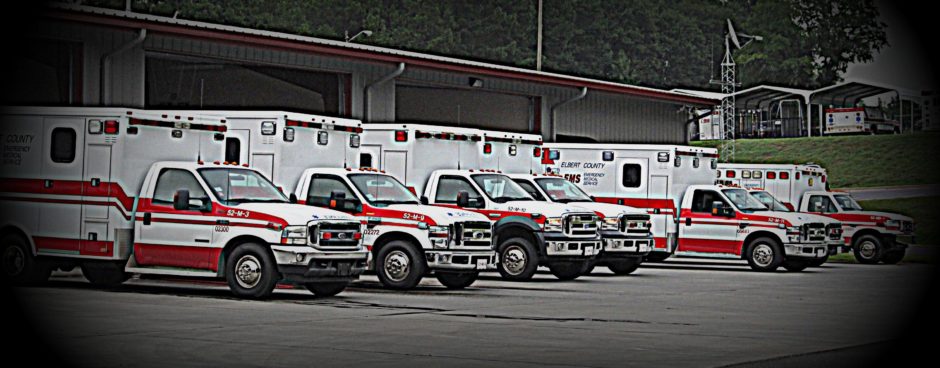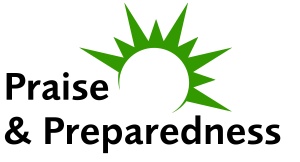Floods, Flash Floods Can Happen Anytime, Anywhere
Last year, Georgia experienced a record-setting wet year. It was the fifth wettest year in Atlanta, the sixth wettest year in Columbus, and the ninth wettest year ever recorded in south Georgia. Meanwhile, Macon had its wettest year on record, with 72.91 inches of rain. The heavy rain caused flooding that washed away roads and bridges and damaged dozens of homes and businesses across Georgia throughout 2013.
Floods are the most common and widespread of all natural disasters, except fire. Floods can be slow or fast rising but generally develop over a period of days. Flash floods usually result from intense storms dropping large amounts of rain within a brief period. They occur with little or no warning and can reach full peak in only a few minutes. Dam failures are potentially the worst flood events. When a dam fails, an enormous quantity of water suddenly rushes downstream, destroying anything in its path.
“Neighborhoods located in low-lying areas are especially at risk for flooding. Those near bodies of water or downstream from a dam are vulnerable, too,” says Elbert County Emergency Management Agency (EMA) Director Chuck Almond.
Here is some information to help you develop a plan and be ready to act before the possibility of a flood or flash flood threatens you or your family:
Know What to Expect
· Know your area’s flood risk — if unsure, call your local emergency management agency office, planning and zoning department, or visit www.floodsmart.gov.
· If it has rained hard for several hours or rained steadily for several days, prepare for the possibility flooding.
· Closely monitor a local radio station, television or NOAA Weather Radio for flood information.
Reduce Potential Flood Damage By
· Avoid building or buying a home in a floodplain. Visit www.floodsmart.gov to learn about your flood risk.
· Raising your furnace, water heater, and electric panel if they are in areas of your home that may be flooded.
· Consulting a professional for further information about damage reduction measures that you can implement.
Floods Can Take Several Hours or Days to Develop
· A flood WATCH means a flood is possible in your area.
· A flood WARNING means flooding is already occurring or will occur soon in your area.
Flash Floods Can Take Only a Few Minutes or a Few Hours to Develop
· A flash flood WATCH means flash flooding is possible in your area.
· A flash flood WARNING means a flash flood is occurring or will occur very soon.
Prepare a Family Disaster Plan
· Check to see if you have insurance that covers flooding. If not, get flood insurance immediately.
· Keep insurance policies, documents, and other valuables in a safe-deposit box.
· Identify where you could go if told to evacuate. Choose several places — a friend’s home in another town, a motel, or a shelter.
Assemble a Disaster Supplies Kit Containing
· First aid kit and essential medications.
· Canned food and can opener.
· At least three gallons of water per person.
· Protective clothing, rainwear, and bedding or sleeping bags.
· Battery-powered radio, flashlight, and extra batteries.
· Special items for infants, elderly, or disabled family members.
· Written instructions for how to turn off electricity, gas and water if authorities advise you to do so. (Remember, you’ll need a professional to turn them back on.)
When a Flood WATCH is Issued
· Move your furniture and valuables to higher floors of your home.
· Fill your car’s gas tank, in case an evacuation notice is issued.
When a Flood WARNING is Issued
· Closely monitor NOAA Weather Radio, local radio or television for the latest weather forecasts.
· If told to evacuate, do so immediately!
When a Flash Flood WATCH is Issued
· Be alert to signs of flash flooding and be ready to evacuate on a moment’s notice.
When a Flash Flood WARNING is Issued
· Or if you think flooding has begun, evacuate immediately. You may have only seconds to escape. Act quickly!
· Move to higher ground away from rivers, streams, creeks, and storm drains. Do not drive through or around barricades . . . they are there for your safety.
· If your car stalls in rapidly rising waters, abandon it immediately and climb to higher ground.
To help families prepare, Ready Georgia, a statewide emergency preparedness campaign established by the Georgia Emergency Management Agency/Homeland Security offers the tools needed to make an emergency supply kit, develop a communications plan and stay informed about potential threats. Visitors to Ready Georgia’s website, www.ready.ga.gov, can create an online profile to receive a tailored plan for the entire family that includes the specific amount of supplies to put in their household Ready kits. They can also find local emergency contact information, learn about Georgia-specific disasters and read preparedness testimonials from local sports stars. Employers can use the Ready Your Business guide to create custom contingency plans and children can visit the ReadyKids page for age-appropriate information, videos and games. For preparedness on the go, families can also download Ready Georgia’s free mobile app to learn how to prepare for emergencies, create family communications plans and more.
For more information, contact Elbert County EMA at 706-283-2003 or visit these websites: www.ready.ga.gov, www.srh.noaa.gov/ffc/ or www.gema.ga.gov.
About Ready Georgia
Ready Georgia is a statewide campaign designed to educate and empower Georgians to prepare for and respond to natural disasters, pandemic outbreaks, potential terrorist attacks and other large-scale emergencies. The campaign is a project of the Georgia Emergency Management Agency (GEMA) and provides a local dimension to Ready America, a broader national campaign. Ready Georgia aims to prepare citizens for maintaining self-sufficiency for at least 72 hours following an emergency, and uses an interactive website, free mobile app, online community toolkit, broadcast and print advertising and public awareness media messaging to reach its audiences. Ready Georgia is also on Facebook and YouTube.




